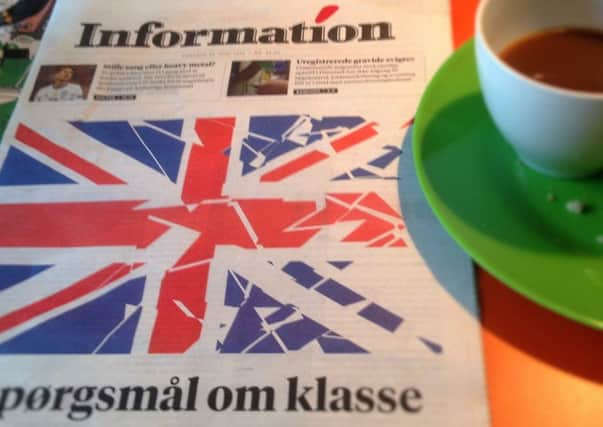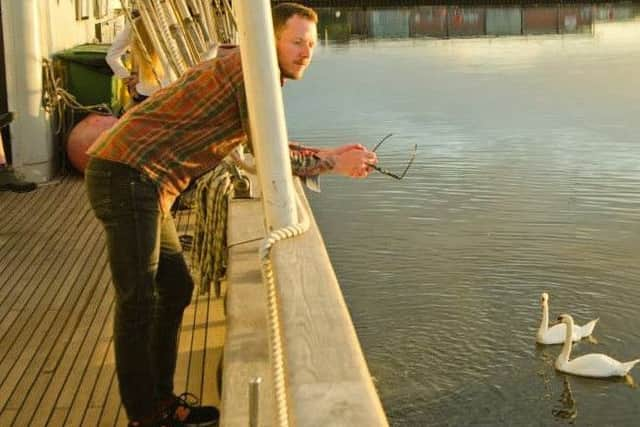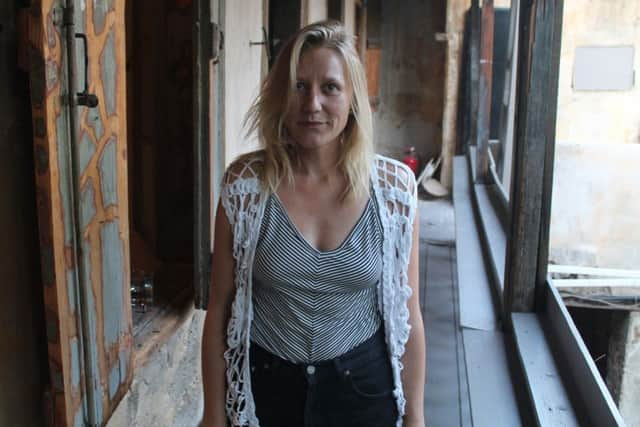Brexit: How are Scots on mainland Europe responding to vote
This article contains affiliate links. We may earn a small commission on items purchased through this article, but that does not affect our editorial judgement.


In the early hours of last Friday a torrential storm swept in over Copenhagen, and Danes sat up unable to sleep at their TVs as Britain’s exit from the European Union became more and more concrete.
Immediately the Danish Prime Minister gave a rather downbeat press conference in which he listed the number of Danish jobs immediately under threat due to the UK exit from the union both countries had joined in 1973.
Advertisement
Hide AdAdvertisement
Hide AdErik Weir is a half-Scottish journalist who works as an editor for Danish public radio.


With years of reporting experience from all over Europe he has followed the EU and Britain’s place in it closely. Like his colleagues, he was taken aback by the result:
“The Danish response to Brexit was surprise and amazement,” he says.
“How could a nation go and have a referendum so utterly unprepared on the subject up for debate?
“I think that the Danes thought that the British were a little crazy with so much at stake.”


In terms of Scotland, Weir thinks it need not be a catastrophic decision, especially if Scotland can stay in the EU:
“Brexit should and could have a positive impact for Scotland though [in the event of independence]. It will take a lot of hard work for Scotland to become one of the frontrunners in the EU though,” says Weir.


“Some within the SNP like to think of Scotland as a Scandinavian welfare state, but Scotland is still thirty or forty years behind Denmark. You’ll have to improve on schooling, social care, housing and environmental questions. If you want to go places I’m sure the EU can and will provide the right framing for a positive Scottish future.”
Advertisement
Hide AdAdvertisement
Hide AdDenmark is one of the richest countries in Europe but still takes money from the EU pot. The train from Copenhagen south to Berlin currently involves one of the continent’s last train ferries, shortly to be replaced by the EU-funded Fehmarn bridge and tunnel. One of the many infrastructure projects across the continent to be coordinated by the EU, it is part of a larger strategy to bring member states closer by reducing transport times for goods and people.
Many in Europe’s mobile labour market flock to Germany. In Berlin the weather is hot, and people are crowding the Turkish pavement cafes of the city’s Neukölln neighbourhood. Neukölln is a mix of poorer immigrants from outside the EU, not least the Turkish migrant workers that have underpinned Germany’s postwar economy, and younger mobile workers in footloose industries. At a table on the street, Pete Ballantine and a group of young Germans and Scots watch the European Championships on a projector set up on a trailer.
The result came as a shock to Ballantine, who says he and his Scottish friends are now trying to work out what it means for them:


“Like most of my (mostly immigrant) pals, I believed that British exit was inconceivable, but then Sunderland happened and the horror unfolded. I felt like apologising and hanging my head in shame, even though I had voted to remain. The story was everywhere, leading all news broadcasts and covering all the front pages. I wanted to see some leadership from home, he says, “but only Nicola Sturgeon seems to have acted authoritatively and reassuringly.”
Further south still in Athens there was no large outcry following the UK’s decision, despite the opposition to EU austerity amongst the Greek population that destroyed the country’s economy last year. The property crash that followed has made the city a melting pot, with young people drawn in from across the EU by cheap rents.
Liva Dudareva is a landscape architect, originally from Latvia. She studied at the Edinburgh College of Art and then worked commercially in Edinburgh before setting up her architecture consultancy, Metasitu, in the winding streets near the Acropolis with her Spanish partner. Many of their projects are funded through European cooperation initiatives, including Creative Scotland.
“ It doesn’t actually matter so much what happens now,” she thinks, “the damage has been done already. There has been a change in perception. I actually don’t believe Scotland will leave the EU, but there has been a shift about the whole idea of living and studying in the UK with Brexit.”
Her sister still lives in Glasgow and runs a film production company. Dudareva says she is scared about what will now happen.
Advertisement
Hide AdAdvertisement
Hide Ad“The EU is extremely important to us… being part of that union without needing to apply for visas has opened so many doors in terms of working, and made it easier to move between countries.”
As Nicola Sturgeon fights to preserve Scotland’s connection to the EU, there are those on the continent just as eager to see a solution as the majority of Scottish voters. It is a reminder that the EU is not just an economic union, but a social one.
DOWNLOAD THE SCOTSMAN APP ON ITUNES OR GOOGLE PLAY
